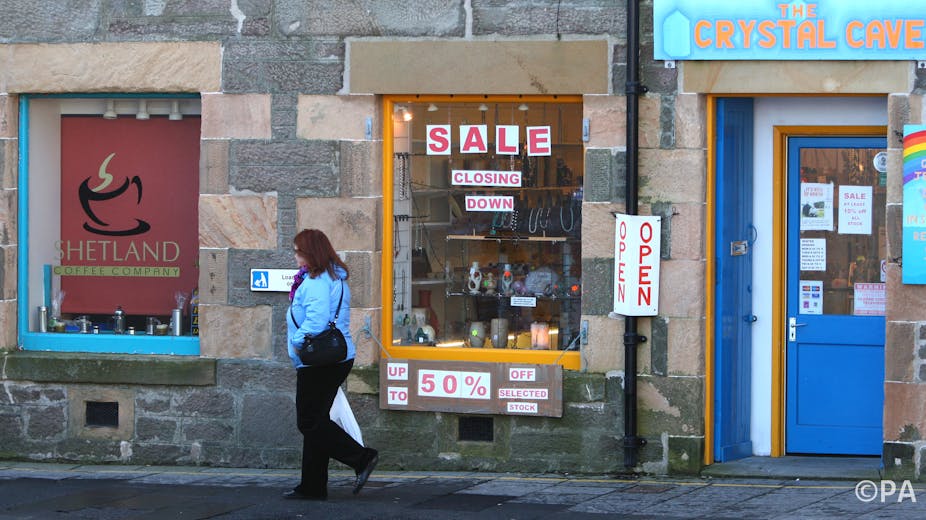E-commerce has irreversibly transformed our lives by giving us greater control over how, what, where and when we purchase. The further away an area is from traditional shopping regions, the more pronounced the impact, and nowhere have such changes been more in evidence than across the remote Scottish isles.
For the past 18 months myself and my colleague Eric Calderwood have looked at the impact of internet adoption upon traditional patterns of life in the Shetlands, the Orkneys and the Outer Hebrides. We found people enjoying the freedom and price of online shopping, but we also identified worries over the longer term health of their communities.
While it is very easy to romanticise about living in such a stunningly beautiful part of the country, living on an island presents numerous domestic challenges. Access to retail goods and services have traditionally been limited, availability is often unpredictable and prices are higher than on the mainland. Island retailers are primarily concentrated in the main town and public transport is unreliable.
It is perhaps little wonder then that our research identified the positive impact e-commerce has had upon the lives of island residents. It has provided a level of choice and degree of accessibility never previously experienced on the Scottish islands.
So, job done. Everyone is happy. Well no, not quite.
Our research also found that the overwhelming majority of internet purchases were made from mainland or overseas retailers. There was little evidence of island residents using local websites to purchase goods and services (indeed it was noticeable how many people we spoke to couldn’t even name a local site).
Local island retailers of course tend to be small and often lack marketing and technical expertise. What was clear however was the ability of island residents to identify those sites that offered the most competitive prices, the cheapest carriage and the most accessible returns policy. On these criteria national retailers such as John Lewis, Next and Amazon were regularly mentioned, and it isn’t hard to see why. Local retailers will always struggle to compete against technically advanced sites that can use large scale distribution networks and economies of scale to keep prices competitive.
These changes in shopping habits affect not only the island retail sector but also the regional economy as a whole. Outshopping (or trade leakage) occurs when consumers shop outside their local community and where goods and services traditionally purchased locally are bought elsewhere. In the context of the Scottish islands, money that was traditionally spent in local stores now flows to the mainland or overseas.
Of course “outshopping” is not new; residents have traditionally purchased through catalogues, or taken trips to the mainland. However the scale of purchasing, the ease of ordering and the range of products that can be bought online represents an unprecedented threat to the islands’ retail economy.
While the scale and scope of this trade leakage has yet to be measured, it is apparent that online shopping gives rise to a series of social and economic issues not fully recognised or acknowledged within policy circles.
Ironically those who are now enjoying the benefits of e-commerce may find future employment prospects limited as shops close down and island high streets decline. At the same time, residents who are without internet access may find it increasingly difficult to access goods and services through traditional channels.
But it would be a mistake to imagine residents being too sentimental about the loss of local shops. Opinion among the islanders themselves is split. While many mourned the decline of the town centre, such sympathies were also tinged with a sense of inevitability. On more than one occasion we were informed that many retailers “had it coming”, a remark that was typically followed with a complaint about service, quality, availability or price. This reflected the fact that, prior to the arrival of the internet, residents had limited product choice and were often compelled to use a specific retailer.
It is unclear whether the factors that govern an island economy represent a unique set of circumstances or whether the mixed fortunes of consumer and retailer are the unseen or unspoken consequences of the new digital era. What we do know is that, for those living on the Scottish islands, online shopping is both a blessing and a curse.

